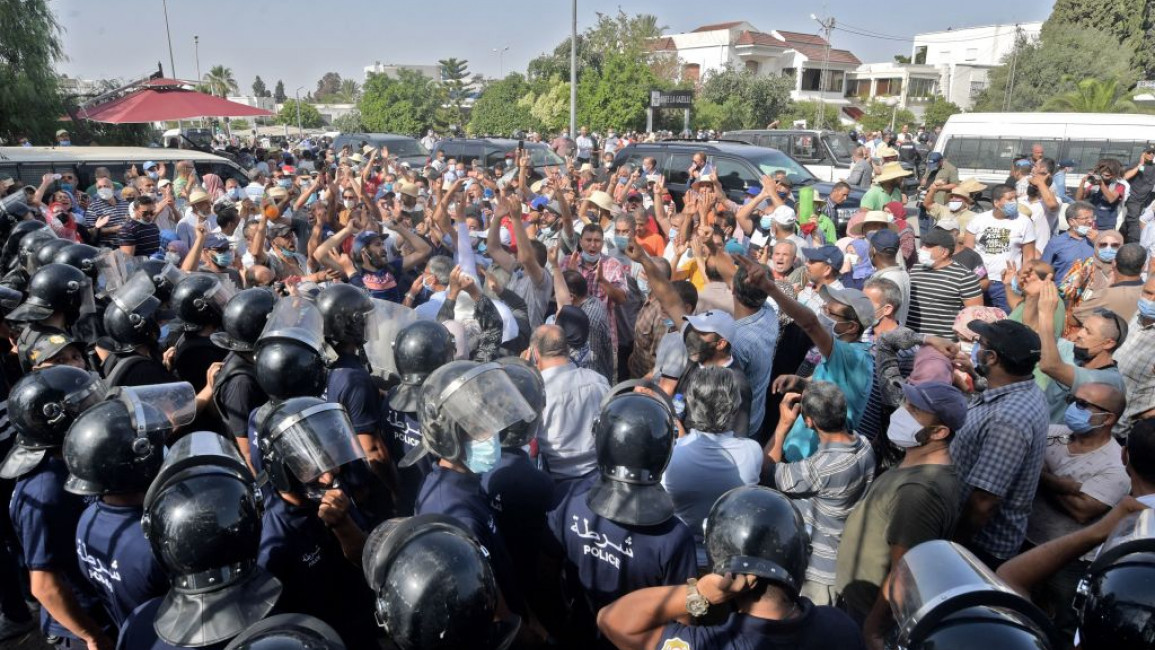Tunisian security forces storm Al Jazeera office in capital, telling journalists to leave
Tunisian police stormed Al Jazeera’s bureau in the capital Tunis hours after President Kais Saied’s dismissal of Prime Minister Hichem Mechichi and suspension of parliament late on Sunday, in a move critics have called a "coup d’etat".
At least 10 heavily armed police officers entered the office on Monday and asked all journalists to leave, according to Al Jazeera.
The security forces told journalists they were carrying out instructions from the country's judiciary, the media organisation reported.
"They didn’t have a judiciary [notice] but asked the staff to leave, preventing them from taking their personal belongings,” wrote Al Jazeera English Senior international correspondent Hoda Abdel-Hamid on Twitter.
Abdel-Hamid said security forces were dressed in plain clothes at the time of the raid.
Plain clothed security forces entered the office of Al Jazeera in #Tunis. They didn't have a judiciary notice but asked the staff to leave, preventing them from taking their personal belongings. #Tunisia
— Hoda Abdel-Hamid (@HodaAH) July 26, 2021
Lutfi Hajji, Al Jazeera's bureau chief in Tunisia, described the raid as "unprecedented" and a "Ben Ali" style crackdown on the press, referring to former dictator Zine El Abedine Ben Ali who was overthrown in a popular revolution in 2011.
Hajjaj said security forces "requested the journalists to close all phones and computers and unplug all devices".
Arab Media & Democracy, a research project funded by the British Academy, called the "attacks... an aggression against freedom of expression" on Twitter.
Tunisians from all sides of the political divide have gathered outside the parliament building to protest the sudden suspension of the government.
A decade on from Tunisia's 2011 revolution, the country was held up as the sole success story of the Arab Spring - with presidential powers being largely confined to security and diplomacy under a constitution that enshrines a parliamentary democracy.
The "coup" comes after a prolonged period of deadlock between the president, prime minister and legislature, which has crippled management of a coronavirus crisis and seen Tunisia have one of the highest per-capita death rates from the disease in the world.



